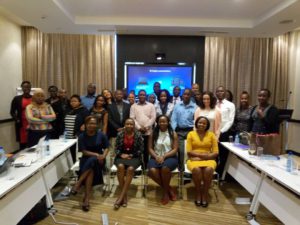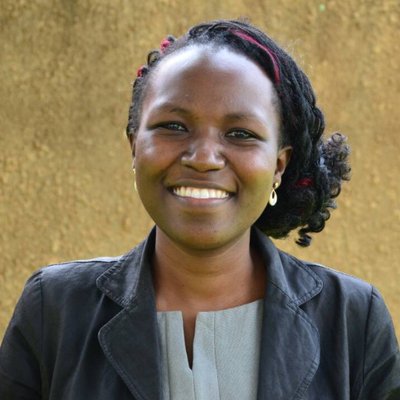By Rose Wakikona
 Planned Parenthood Global (PPG) organized a regional multi-stakeholder meeting between 5th to 9th March 2018 held at Royal Tulip Hotel, Nairobi Kenya for the LSN and the Health Workers that they represent. The meeting was attended by partners from South America, Kenya, Uganda and Tanzania who are implementing the LSN model. The purpose of the meeting was to generate an understanding of the PPG LSN model among the LSN implementing partners and the health workers they represent. The parties met to discuss how the LSN model has evolved in each country and how best to tweak it to suit the individual needs of each country.
Planned Parenthood Global (PPG) organized a regional multi-stakeholder meeting between 5th to 9th March 2018 held at Royal Tulip Hotel, Nairobi Kenya for the LSN and the Health Workers that they represent. The meeting was attended by partners from South America, Kenya, Uganda and Tanzania who are implementing the LSN model. The purpose of the meeting was to generate an understanding of the PPG LSN model among the LSN implementing partners and the health workers they represent. The parties met to discuss how the LSN model has evolved in each country and how best to tweak it to suit the individual needs of each country.
CEHURD has coordinated the LSN since 2014, since its establishment the LSN has a membership of over 24 lawyers with a specially trained in Sexual Reproductive Health Rights. The goal of the LSN is to create a safe environment for health workers to provide reproductive health services to those who need them and the LSN does this by providing legal support to Health Workers caught up in the justice system for providing reproductive health services thus increasing their confidence to provide these services. This is done using a 3 pronged approach of preventative, reactionary and advocacy;
The preventative approach is the core of the model with the LSN looking to reduce the legal risk of the health workers as much as possible to ensure that they do not end up in conflict with the law in the first place, this they do by making a thorough analysis of the laws in their respective countries and informing the health workers of the dos and don’ts as prescribed by the law, they also conduct site visits to assess the compliance of the different health facilities and ensure that the health workers are working within the ambit of the law. Under this approach the LSN also develops guides for the health workers to use as a point of reference when faced with a potentially combustible situation.
The reactionary approach comes in play when the preventative does not work and someone slips through the cracks. With this the LSN comes on board to provide legal representation for health workers at police and in court when they are in conflict with the law. The advocacy approach sees the LSN work to and participate in activities that see the furtherance of Sexual Reproductive Health Rights this is done by undertaking public interest litigation to challenge archaic laws and provide legal support to organizations doing advocacy around Sexual Reproductive Health Rights.
The LSN in Uganda has used all 3 approaches and conducted compliance visits to over 60 health facilities under Reproductive Health Uganda (RHU) and Family Life Education Program (FLEP), development of reference materials for the health workers, training of health workers and lawyers to build capacity in Sexual Reproductive Health Rights, installation of the toll free line and litigation of strategic cases. The network is also governed by a management committee of 5 members and guided by operational guidelines. The LSN in Kenya is the oldest having started in 2012 with 4 lawyers on board. The LSN in Tanzania is the youngest having started in 2017 with 20 lawyers on board.
During the meeting the health workers expressed excitement for the LSN and undertook to work with the lawyers. They complained of continued police harassment, stigma of service providers, banned standards and guidelines on Sexual Reproductive Health Rights leaving an information gap, fear of imprisonment, untrained health professionals, ignorance of the law, individuals accessing the LSN, referrals to friendly hospitals and lack of representation for pharmacists.
The parties agreed to engage by the LSN disseminating guides on the legal context of reproductive health rights, bringing on board new individual service providers, developing a list of friendly providers who can handle referrals, extending the scope of representation to pharmacists and developing a strategy to manage police harassment of health workers.

